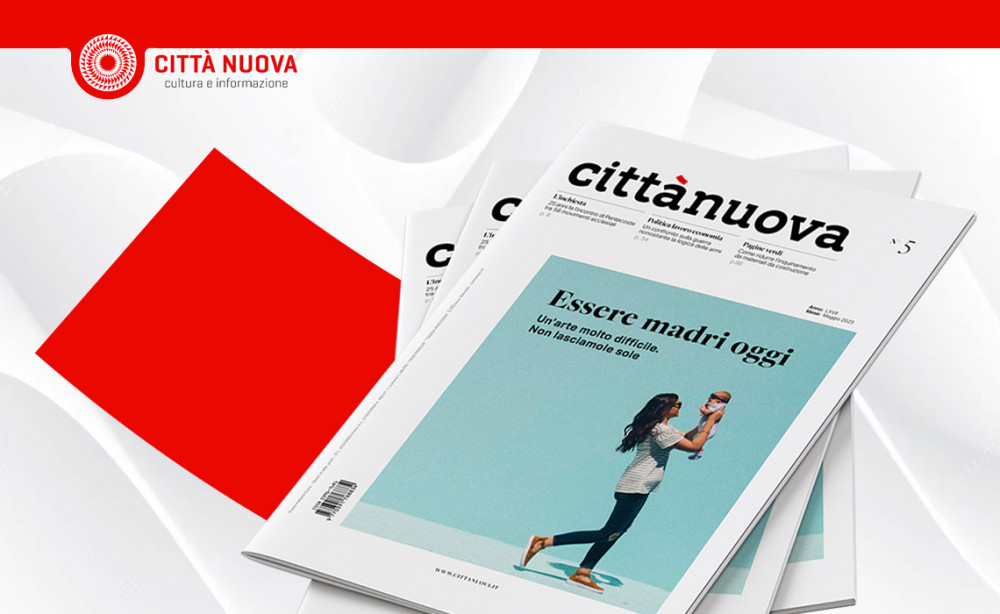Rebirth can be learned /5. Over the years many things change, even within religious communities and spiritual movements. Looking back is not always the right way to overcome the crises of the new times.
by Luigino Bruni
published in Città Nuova on 13/06/2024 - From the Città Nuova Magazine n° 1/2024
In the life of spiritual communities and movements, thinking up the right relationship to the past plays a decisive role, especially in times of great change, and therefore crisis, when it is not at all obvious how to ensure that the charisma continues its course, and what forms it will take so that the continuation is good, one that brings development and life.
In the book of Genesis we read the episode of Lot's wife (Gen 19:26) who became a pillar of salt because she looked back, which is also taken up in the Gospel of Luke (Lk 17:31-32). Looking back was a fatal error committed by that woman, an error that can also be repeated in spiritual and charismatic communities. It consists in looking into the past for the diagnosis and therapy of a present crisis, thinking that the solution can be found by going back to the origin. Many times the past is a useful and necessary resource: in ordinary crises, when what happened yesterday, and then repeated itself many times, creates patterns and laws that help understand what is happening in the present. This is the true meaning of the phrase: history is the teacher of life.
But when times change actually and quickly, when the change of time is qualitative (kairos), because one is faced with a truly unprecedented phase - such as the death of the founder -, the past is not only of little use, but can easily become ballast and a bad advisor for understanding the present and imagining a good future. If, in fact, in the decisive moments of changing epochs one looks backwards, the sad outcome that befell Lot's wife is common and highly probable.
Such cases are easily found in situations that are well known and studied in economic history. If, for example, at the end of the 19th century the inventors of the automobile had asked their fellow citizens what they needed for their transport, they would have answered: a faster carriage. No analysis of yesterday's market could reveal the need for a car, simply because no such thing had existed before. When, in times of great change, one looks into the past, one finds carriages, not cars.
Turning back to communities, the founders leave their communities carriages, often beautiful carriages that are ahead of their time, but - and here is the point - the communities live in the time of cars. And when, in the crisis, you decide to look back in search of solutions, you find manuals for carriage construction, horse maintenance, wheels, shock absorbers; all things that were very useful for building and maintaining carriages yesterday, but useless for creating cars today and tomorrow.
In the time of crisis that comes after the passage from the founder's generation to the next one, in the natural confusion that one experiences, the most common mistake is to think that salvation is to be found by searching and finding in the past to find the resources for that “radicality” of life that is no longer there to be seen, for that total faithfulness to the charisma that today appears clouded. Therefore, much energy is invested in studying the roots well, in training new members with the materials of yesterday presented as the only and the best cure for today's crisis.
This happens naturally because in times of great uncertainty and serious disorientation, in fact, the only available resource at hand seems to be the past. And so we are under the illusion that the fact of having only one resource makes this single resource also a good resource. One goes in search of the founder's words, episodes and cautionary tales of yesterday, one also tries to explain their lost authentic interpretation, pursuing the illusion that those texts are the means to be reborn today. Thus one takes those wonderful old carriage manuals and those colourful drawings of beautiful carriages, and perhaps even manages, in some places, to build a few more good carriages, but in the meantime, faster and faster cars are whizzing past us.
However, in such times of transition, a good strategy should imagine and attempt two operations. The first is a work on charisma, understanding - to remain within the metaphor - that the gift received through the founder is not tied to the construction of carriages but to transport; and therefore understanding that the charisma that was expressed in the construction of carriages yesterday can also produce cars (perhaps even electric ones) today. And next, leaving yesterday's instruction manuals behind and using the spirit of charisma to write new manuals for the construction of new means of transport. And finally getting to work with the same enthusiasm as in the early days.








